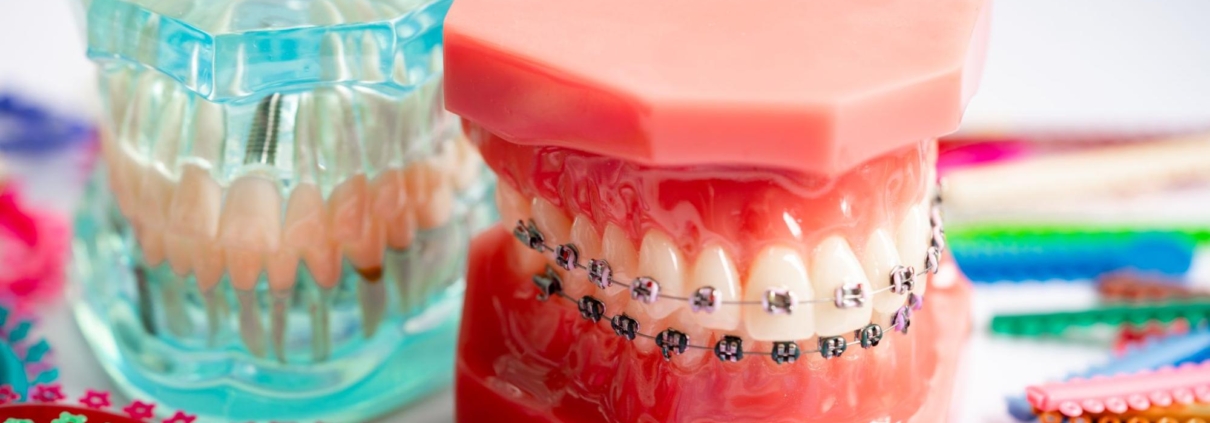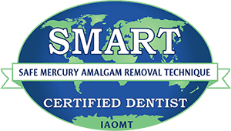How to Detox Heavy Metals
Exposure to heavy metals can be a significant concern due to certain dental materials and treatments that may contain toxic elements like mercury, cadmium, or nickel. These metals can accumulate in the body over time, potentially leading to adverse health effects. Heavy metals such as lead, mercury, cadmium, and arsenic can accumulate in the body over time, leading to a range of health issues, including neurological disorders, cardiovascular problems, and impaired immune function. Detoxifying the body from these harmful metals is crucial for maintaining overall health and well-being. By understanding effective strategies for addressing heavy metal exposure related to dental sources, individuals can take proactive steps to safeguard their well-being and optimize their dental care.
Importance of Detoxing Heavy Metals
Detoxing heavy metals from the body is vital due to the potential health risks associated with metal accumulation. Naturally occurring substances include food, water, the environment, and even some dental materials that can contain heavy metals. Although the body has detoxification processes to get rid of heavy metals, these processes can be overpowered by prolonged exposure or high levels of heavy metals, which can result in toxicity and health issues. Here are several reasons why detoxing heavy metals is essential.
Preventing Health Complications
Detoxing heavy metals is crucial for preventing a range of health complications associated with metal toxicity. Heavy metals such as lead, mercury, cadmium, and arsenic are known to have toxic effects on various organs and systems in the body. Chronic exposure to these metals can contribute to serious health issues, including neurological disorders such as memory loss and cognitive impairment (commonly associated with mercury and lead), cardiovascular problems like hypertension and heart disease (linked to lead and cadmium), kidney damage and dysfunction due to accumulation of metals like cadmium and arsenic, and immune system suppression, making the body more susceptible to infections and illnesses. By detoxing heavy metals, individuals can significantly reduce their risk of developing these serious health problems and promote overall well-being.
Supporting Oral Health
In dental health, certain metals used in dental fillings, crowns, or implants (e.g., mercury in dental amalgam) can leach into the body over time, affecting both oral and systemic health. Mercury, commonly used in dental amalgam fillings, has raised concerns due to its potential neurotoxicity and environmental impact. Maintaining good oral health and lowering the risk of dental-related health problems require detoxifying heavy metals from dental sources. Under the supervision of a licensed dentist, selecting biocompatible dental materials and taking metal removal procedures into account can help reduce exposure to heavy metals and promote general oral health.
Enhancing Detoxification Pathways
Heavy metal detoxification is key in supporting the body’s natural detoxification pathways, primarily involving the liver, kidneys, and gastrointestinal system. These organs are responsible for filtering and eliminating toxins from the body, including heavy metals. On the other hand, prolonged exposure to or elevated concentrations of heavy metals can overpower these detoxification mechanisms, resulting in the build-up and toxicity of metals. People can lessen the strain on these essential organs and improve their ability to remove waste materials and other toxins from the body by detoxifying from heavy metals.
Improving Energy Levels and Vitality
Heavy metal toxicity can contribute to symptoms of fatigue, low energy levels, and a general feeling of malaise. Detoxing heavy metals can help restore energy and vitality by reducing the physiological burden caused by metal accumulation. People may feel more energized, more resilient, and more well-rounded after eliminating heavy metals from their bodies.
Supporting Cognitive Function
Certain heavy metals, particularly mercury and lead, are known to be neurotoxic and can impair cognitive function, memory, and mental clarity. Chronic exposure to these metals may contribute to cognitive decline and neurological disorders. Eliminating heavy metals from the body can enhance mental clarity and promote normal brain development. Lowering one’s heavy metal burden may improve memory retention, mental clarity, and general cognitive improvement.
Promoting Longevity and Quality of Life
Detoxing heavy metals contributes to longevity and a higher quality of life by reducing the risk of chronic diseases and supporting overall health and vitality. By addressing heavy metal toxicity through effective detoxification strategies, individuals can optimize their health and well-being, allowing them to lead longer, healthier, and more fulfilling lives.
Eliminating heavy metals from the body is crucial for avoiding health issues, maintaining dental health, strengthening detoxification processes, boosting vitality and energy, bolstering cognitive function, and encouraging longevity and high quality of life. Those who are worried about being exposed to heavy metals should think about speaking with medical professionals who are experienced in metal detoxification techniques to create a customized detox plan that meets their requirements and health objectives.
 Risks of Detoxing Heavy Metals
Risks of Detoxing Heavy Metals
Removing heavy metals from the body can benefit general health, but there are certain risks and things to remember when detoxifying. Here are important factors to consider when detoxing heavy metals:
Redistribution of Metals
One potential risk of detoxing heavy metals is the redistribution of metals within the body during the detox process. When heavy metals are mobilized and released from tissues and organs, they can temporarily circulate in the bloodstream before excretion. Fatigue, headaches, and nausea are temporary symptoms that may result from this redistribution. It’s important to undergo heavy metal detox under the guidance of a qualified healthcare professional to minimize these effects.
Detox Reaction
Some people might have a detox reaction when undergoing heavy metal detoxification. This response may show up as rashes on the skin, mood swings, gastrointestinal problems, or flu-like symptoms. These symptoms occur as the body eliminates toxins, including heavy metals, and adjusts to the detoxification process. Adequate hydration, rest, and support from healthcare providers can help manage detox reactions effectively.
Depletion of Essential Nutrients
Certain detoxification protocols, such as chelation therapy or specific dietary interventions, may deplete essential nutrients in the body. Chelation agents that bind heavy metals, for instance, can also bind to vital minerals such as calcium, magnesium, or zinc, which could result in deficiencies. During a heavy metal detox, it’s critical to take supplements of the right nutrients and minerals under the supervision of a medical professional.
Kidney and Liver Strain
Heavy metal detoxification places additional stress on the kidneys and liver, which are responsible for filtering and eliminating toxins from the body. Prolonged or intensive detox protocols can strain these organs and potentially exacerbate existing kidney or liver conditions. Individuals with kidney or liver disease should exercise caution and consult with their healthcare provider before undergoing heavy metal detox.
Herxheimer Reaction
A Herxheimer reaction, sometimes called a Jarisch-Herxheimer reaction, may occasionally be brought on by heavy metal detoxification. An inflammatory response is triggered when toxins enter the bloodstream more quickly than the body can remove them. Symptoms may include fever, chills, muscle aches, and worsening symptoms. Proper hydration, supportive therapies, and gradual detox protocols can help manage Herxheimer reactions.
Individual Sensitivity
Individual sensitivity to detoxification methods can vary based on genetics, health status, and previous exposure to heavy metals. Detox side effects or adverse reactions might be more common in certain people. It is crucial to start with mild detox protocols and monitor for side effects. Depending on each person’s response during the detoxification, modifications to the detox plan might be required.
While detoxing heavy metals can be beneficial for overall health, it’s essential to approach detoxification with caution and under the guidance of a qualified healthcare professional. Assuring safe and efficient heavy metal detoxification while limiting side effects requires careful consideration of potential risks, individual sensitivity, and appropriate support throughout the detox process. Speaking with a medical professional experienced in detoxification techniques, creating a customized detox plan is advised based on each person’s requirements and health objectives.
Incredible Impact of Detoxing Heavy Metals in Oral Health
Detoxing heavy metals from the body can profoundly impact oral health, particularly in reducing the potential risks associated with metal exposure from dental sources. Here are several remarkable benefits of undergoing heavy metal detoxification for oral health:
Reduced Risk of Systemic Health Issues
Beyond oral health problems, heavy metals from dental sources, such as mercury from amalgam fillings, may be linked to systemic health problems. Mercury is harmful to the nervous system and potentially detrimental to general health. Detoxing heavy metals can help reduce the systemic burden of these metals, supporting overall health and reducing the risk of associated health conditions.
Minimized Oral Health Complications
Detoxing heavy metals can help minimize oral health complications related to metal exposure. For instance, inflammation of the gums and oral lichenoid reactions have been linked to mercury exposure from amalgam fillings. Through detoxification, people can lessen their heavy metal burden, improve their oral health, and lower their risk of developing oral health issues.
Support for Biocompatible Dental Materials
The biocompatibility of heavy metals promotes the use of dental materials that reduce the risk of exposure to metals and their potential adverse health consequences. Dental restorations made from materials other than metals, like composite resins and ceramics, for example, can further promote oral health and decrease the need for metal detoxification.
Enhanced Healing and Tissue Integrity
Toxicity from heavy metals can affect your immune system and tissue health, affecting your oral healing process. Detoxifying heavy metals helps your immune system and helps your tissue repair, which is important for oral health and optimal healing after dental procedures.
Overall Wellness and Vitality
Improving oral health through heavy metal detoxification contributes to overall wellness and vitality. By addressing potential sources of heavy metal exposure and reducing toxic burden, individuals can experience greater energy levels, improved immune function, and a heightened sense of well-being.
Detoxing heavy metals can remarkably impact oral health by reducing the risk of systemic health issues, minimizing oral health complications related to metal exposure, supporting biocompatible dental materials, enhancing healing and tissue integrity, and promoting overall wellness and vitality. Individuals concerned about heavy metal exposure from dental sources should consult with a qualified healthcare professional knowledgeable in detoxification methods to develop a personalized detox plan tailored to their oral health needs and goals.
 Effective Strategies for Detoxing Heavy Metals
Effective Strategies for Detoxing Heavy Metals
Detoxing heavy metals is a proactive step toward improving health and preventing potential health complications associated with metal toxicity. For heavy metal detoxification to be safe and effective, it must be done so under the supervision of licensed healthcare professionals. People can improve their health and well-being by combining detoxification techniques customized to their needs and health objectives.
Visit Frederick Dreher, DDS PC’s blog, for valuable insights and guidance.






Leave a Reply
Want to join the discussion?Feel free to contribute!